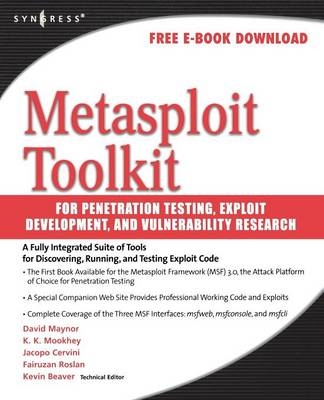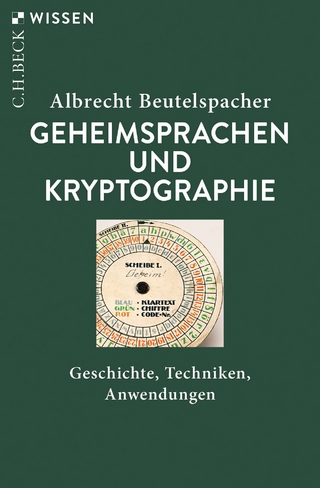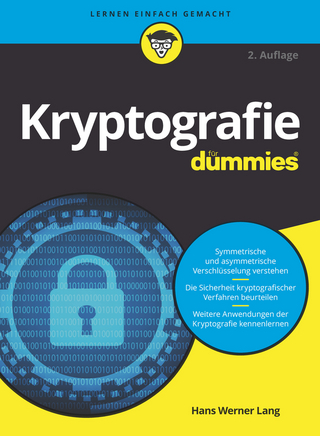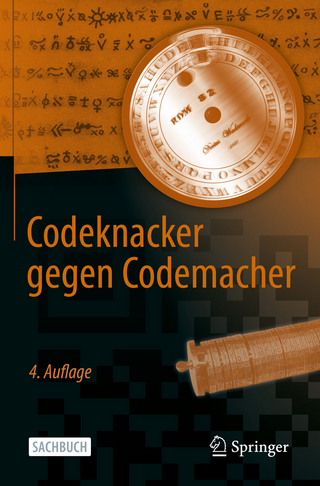
Metasploit Toolkit for Penetration Testing, Exploit Development, and Vulnerability Research
Syngress Media,U.S. (Verlag)
978-1-59749-074-0 (ISBN)
- Titel ist leider vergriffen;
keine Neuauflage - Artikel merken
Metasploit Toolkit for Penetration Testing, Exploit Development, and Vulnerability Research is the first book available for the Metasploit Framework (MSF), which is the attack platform of choice for one of the fastest growing careers in IT security: Penetration Testing. The book will provide professional penetration testers and security researchers with a fully integrated suite of tools for discovering, running, and testing exploit code.
This book discusses how to use the Metasploit Framework (MSF) as an exploitation platform. The book begins with a detailed discussion of the three MSF interfaces: msfweb, msfconsole, and msfcli .This chapter demonstrates all of the features offered by the MSF as an exploitation platform. With a solid understanding of MSF’s capabilities, the book then details techniques for dramatically reducing the amount of time required for developing functional exploits.
By working through a real-world vulnerabilities against popular closed source applications, the reader will learn how to use the tools and MSF to quickly build reliable attacks as standalone exploits. The section will also explain how to integrate an exploit directly into the Metasploit Framework by providing a line-by-line analysis of an integrated exploit module. Details as to how the Metasploit engine drives the behind-the-scenes exploitation process will be covered, and along the way the reader will come to understand the advantages of exploitation frameworks. The final section of the book examines the Meterpreter payload system and teaches readers to develop completely new extensions that will integrate fluidly with the Metasploit Framework.
David Maynor is a Senior Researcher, SecureWorks. He was formerly a research engineer with the ISS Xforce R&D team where his primary responsibilities include reverse engineering high risk applications, researching new evasion techniques for security tools, and researching new threats before they become widespread.
Chapter 1: Introduction to Metasploit
Chapter 2: Architecture, Environment, and Installation
Chapter 3: Metasploit Framework & Advanced Environment Configurations
Chapter 4: Add-on Modules
Chapter 5: Exploiting the Target
Chapter 6: Converting Public Payloads
Chapter 7: Writing New Payloads
Chapter 8: Automating Exploitation
Chapter 9: IPS Evasion
Chapter 10: CASE STUDY I: Raxnet Cacti remote command execution
Chapter 11: CASE STUDY II: Mercur Messaging 2005 SP3 IMAP Remote Buffer Overflow (CVE –2006-1255)
Chapter 12: CASE STUDY III SlimFTPd String Concatenation Overflow]
Chapter 13: CASE STUDY IV: WS-FTP Server 5.0.3 MKD Overflow
Chapter 14: CASE STUDY V: MailEnable HTTP Authorization Header Buffer Overflow
| Erscheint lt. Verlag | 30.10.2007 |
|---|---|
| Verlagsort | Rockland, MA |
| Sprache | englisch |
| Maße | 191 x 235 mm |
| Gewicht | 500 g |
| Themenwelt | Informatik ► Theorie / Studium ► Kryptologie |
| ISBN-10 | 1-59749-074-1 / 1597490741 |
| ISBN-13 | 978-1-59749-074-0 / 9781597490740 |
| Zustand | Neuware |
| Haben Sie eine Frage zum Produkt? |
aus dem Bereich


